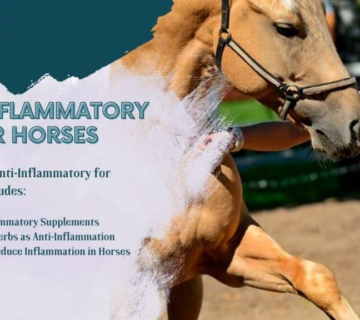Horse Bleeding from Nose: Causes, Symptoms, and Treatment
Introduction
Welcome to our comprehensive guide on horse health. In this article, we will discuss a concerning issue that horse owners may face: a horse bleeding from the nose. We understand the distress this situation can cause, and we are here to provide you with valuable insights into the causes, symptoms, and appropriate treatment for this condition. If you are looking for reliable information on how to handle a horse bleeding from the nose, you have come to the right place.
Understanding Nosebleeds in Horses
Nosebleeds in horses, medically known as epistaxis, can be attributed to various factors. It is essential to recognize the potential underlying causes to ensure appropriate care for your horse. Let’s explore some common causes and symptoms associated with a horse bleeding from the nose.
Causes of Nosebleeds in Horses
1. Trauma or Injury
One possible cause of a horse experiencing a nosebleed is trauma or injury. Accidents, falls, or collisions can result in nasal injuries that lead to bleeding. If your horse has recently experienced any form of physical trauma, it is important to consult a veterinarian for a thorough examination and evaluation.
2. Respiratory Infections
Respiratory infections such as equine influenza or strangles can also contribute to nosebleeds in horses. These infections may cause inflammation and irritation in the respiratory tract, leading to the rupture of blood vessels within the nose. If your horse displays other symptoms such as coughing, nasal discharge, or difficulty breathing, it is crucial to seek veterinary attention promptly.
3. Nasal Tumors or Polyps
Although relatively rare, nasal tumors or polyps can be a potential cause of nosebleeds in horses. These abnormal growths can exert pressure on blood vessels, resulting in bleeding. If your horse experiences recurrent or severe nosebleeds, it is advisable to consult with a veterinarian who may recommend further diagnostic procedures to assess the presence of tumors or polyps.
4. Blood Disorders
Certain blood disorders, such as platelet deficiencies or coagulation abnormalities, can contribute to nosebleeds in horses. These conditions affect the blood’s ability to clot effectively, leading to prolonged bleeding episodes. If you suspect a blood disorder in your horse, it is essential to seek professional veterinary advice for proper diagnosis and treatment.
Symptoms of a Horse Bleeding from the Nose
Detecting and recognizing the symptoms associated with a horse bleeding from the nose is crucial for early intervention. Prompt identification can aid in timely treatment and better outcomes for your horse. Here are some common symptoms to look out for:
- Nasal Discharge: A horse experiencing a nosebleed may have blood-stained or clear discharge coming from one or both nostrils.
- Frequent Head Shaking: Horses may exhibit increased head shaking or rubbing their nose against objects due to discomfort caused by the bleeding.
- Weakness or Lethargy: Excessive blood loss can lead to weakness and lethargy in horses. If you notice a sudden change in your horse’s energy levels, it could be a sign of a nosebleed.
- Coughing or Difficulty Breathing: In some cases, horses with nosebleeds may develop respiratory symptoms such as coughing or difficulty breathing due to the underlying causes.
Treating a Horse Bleeding from the Nose
It is crucial to remember that treating a horse bleeding from the nose should always be done under the guidance of a qualified veterinarian. The treatment approach will depend on the underlying cause and severity of the condition. Here are some general guidelines:
- Immediate First Aid: If your horse experiences a nosebleed, it is important to keep them calm and quiet. Apply gentle pressure to the nostrils using a clean cloth or gauze to help control the bleeding.
- Contact a Veterinarian: Contact a veterinarian as soon as possible to provide a detailed account of the situation and seek professional advice. The veterinarian will conduct a thorough examination, potentially including blood tests or imaging, to determine the underlying cause.
- Treatment Plan: Once the cause is identified, the veterinarian will devise a treatment plan tailored to your horse’s specific needs. This may include medication, nasal flushing, or surgery, depending on the underlying cause and severity of the condition.
Bleeding From Nose Conclusion
In conclusion, a horse bleeding from the nose can be a distressing situation for horse owners. Understanding the potential causes, recognizing the symptoms, and seeking prompt veterinary care are crucial steps in ensuring the well-being of your horse. Remember, this article is intended to provide informative guidance, but it is essential to consult a veterinarian for a proper diagnosis and treatment plan. By staying informed and taking proactive measures, you can help your horse on the road to recovery.




No comment